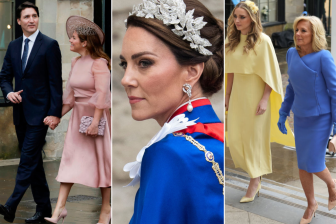The Liberal Party’s lawyers are trying to delay a judicial fight over whether federal political parties must follow basic privacy rules with Canadian voters’ data, Global News has learned.
The Liberal Party’s lawyers are seeking to adjourn a judicial review over the B.C. privacy watchdog’s order that federal parties must adhere to provincial privacy rules.
There are currently almost no rules and zero oversight into how federal political parties collect, store and use sensitive personal information about Canadian voters. Voter data is an increasingly central to modern campaigning, and parties have enjoyed unfettered access to Canadians’ personal information for years.
While the private sector and government institutions must adhere to Canada’s privacy laws, federal parties are exempt. Global News reported last week that the Liberals’ new budget bill, tabled in April, would would guarantee parties those protections.
The move was a direct response to B.C.’s privacy commissioner, who ruled in 2022 that federal parties must follow provincial privacy laws while operating in that province. The Liberals, Conservatives and New Democrats have challenged that ruling in B.C.’s Supreme Court.

Lawyers for the Liberal Party are now arguing that the whole matter must be put aside until after the government’s proposed legislation becomes law — and that the new “privacy” regime, which provides no privacy safeguards, is Parliament’s final word on the matter.
“These proposed amendments further confirm Parliament’s intent that one, uniform privacy regime apply to federal political parties,” reads the Liberal application, obtained by Global News.
“The hearing should be adjourned temporarily until Bill C-47 is passed, and Parliament’s response to (the B.C. privacy watchdog’s order) has become law and can be considered by the court.”
A spokesperson for the Liberal Party declined comment on the issue, other than to confirm the party’s legal position.
While the proposed law does propose a “uniform” regime for federal parties’ handling of personal information, it does not provide any privacy protections whatsoever. The short amendment to the Canada Elections Act simply confirms that parties and their representatives are permitted to collect information on Canadian voters — from whatever source — and use it how they see fit.
That means that if Canadians sign a petition, join a party’s mailing list, provide information to door-to-door canvassers or turn up to party events, their information — including email addresses, physical addresses, voting intentions, and any other information they disclose — can be kept and used indefinitely by party officials.
It also means parties can purchase personal information about Canadian voters from third parties, and combine all of that data to inform their policies and politicking.

Because parties have no minimum cyber security requirements — except those they impose on themselves — it could also put that data at risk of a privacy breach or hacking campaign.
And all of this is done without any independent oversight. Parties are now required to post a privacy policy on their websites, but those policies can be changed at any time and parties are essentially left to police themselves. Without oversight, Canadians essentially have to take the politicians at their word.
Last week, federal Privacy Commissioner Phillipe Dufresne said the Liberal government’s proposal does not establish even “minimum” privacy requirements for political parties, and suggested parties be subject to similar rules imposed on private sector businesses.
“Given the importance of privacy and the sensitive nature of the information being collected, Canadians need and deserve a privacy regime for political parties that goes further than self-regulation and that provides meaningful standards and independent oversight to protect and promote electors’ fundamental right to privacy,” Dufresne said in a statement to the Senate’s legal and constitutional affairs committee.
The B.C. Supreme Court is expected to hear arguments on the judicial review later on Monday.
© 2023 Global News, a division of Corus Entertainment Inc.








More Stories
What Trudeau’s podcast appearances say about the Liberals’ next ballot box question
ANALYSIS | In videos and podcasts, Poilievre and Trudeau are eager to explain themselves — at length | CBC News
South Africa celebrates 30 years since end of apartheid, but discontent grows – National | Globalnews.ca